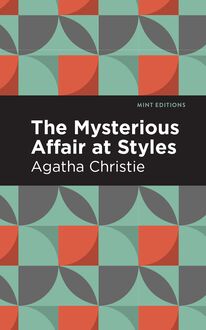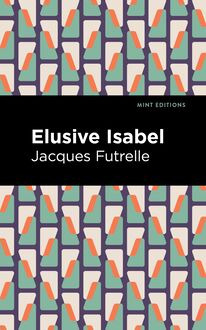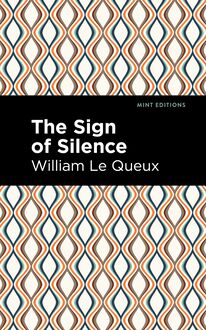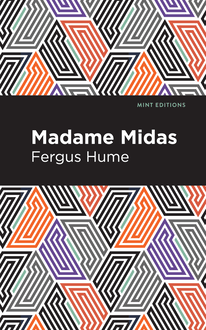-
 Univers
Univers
-
 Ebooks
Ebooks
-
 Livres audio
Livres audio
-
 Presse
Presse
-
 Podcasts
Podcasts
-
 BD
BD
-
 Documents
Documents
-
- Cours
- Révisions
- Ressources pédagogiques
- Sciences de l’éducation
- Manuels scolaires
- Langues
- Travaux de classe
- Annales de BEP
- Etudes supérieures
- Maternelle et primaire
- Fiches de lecture
- Orientation scolaire
- Méthodologie
- Corrigés de devoir
- Annales d’examens et concours
- Annales du bac
- Annales du brevet
- Rapports de stage
La lecture à portée de main
Vous pourrez modifier la taille du texte de cet ouvrage
Découvre YouScribe en t'inscrivant gratuitement
Je m'inscrisDécouvre YouScribe en t'inscrivant gratuitement
Je m'inscrisEn savoir plus
Vous pourrez modifier la taille du texte de cet ouvrage
En savoir plus

Description
The Dead Secret (1856) is a novel by Wilkie Collins. Written in the aftermath of Antonina (1850), his successful debut, The Dead Secret finds the author honing the trademark sense of mystery and psychological unease that would make him a household name around the world. Recognized as an important Victorian novelist and pioneer of detective fiction, Wilkie Collins was a writer with a gift for thoughtful entertainment, stories written for a popular audience that continue to resonate with scholars and readers today. Born in Porthgenna Tower, Rosamond Treverton is a child of secrecy. Her birthmother, Sarah Leeson, became pregnant after an affair with a local miner. Unable to raise her daughter, she allowed her to be adopted by Mrs. Treverton, the lady of the Tower, herself unable to bear children. Sworn to silence, Sarah leaves a hidden note in a room at Porthgenna before disappearing into the night. Years later, the Tower has been inherited by Rosamond, who continues to live there with her husband Leonard Frankland. When she becomes pregnant, a strange nurse arrives to take care of her and soon reveals the secret of her birth, threatening Rosamond’s control of Porthgenna Tower and the Treverton family fortune. Beyond its sensational plot, The Dead Secret is a masterpiece of Gothic suspense and mystery for seasoned readers of Victorian fiction and newcomers alike. With a beautifully designed cover and professionally typeset manuscript, this edition of Wilkie Collins’ The Dead Secret is a classic work of English literature reimagined for modern readers.
Sujets
Informations
| Publié par | Mint Editions |
| Date de parution | 21 mai 2021 |
| Nombre de lectures | 0 |
| EAN13 | 9781513287249 |
| Langue | English |
| Poids de l'ouvrage | 3 Mo |
Informations légales : prix de location à la page 0,0500€. Cette information est donnée uniquement à titre indicatif conformément à la législation en vigueur.
Extrait
The Dead Secret
Wilkie Collins
The Dead Secret was first published in 1856.
This edition published by Mint Editions 2021.
ISBN 9781513282220 | E-ISBN 9781513287249
Published by Mint Editions ®
minteditionbooks .com
Publishing Director: Jennifer Newens
Design & Production: Rachel Lopez Metzger
Typesetting: Westchester Publishing Services
C ONTENTS B OOK I I. T HE T WENTY-THIRD OF A UGUST, 1829 II. T HE C HILD III. T HE H IDING OF THE S ECRET B OOK II I. F IFTEEN Y EARS A FTER II. T HE S ALE OF P ORTHGENNA T OWER III. T HE B RIDE AND B RIDEGROOM B OOK III I. T IMON OF L ONDON II. W ILL THEY C OME? III. M RS. J AZEPH IV. T HE N EW N URSE V. A C OUNCIL OF T HREE VI. A NOTHER S URPRISE B OOK IV I. A P LOT AGAINST THE S ECRET II. O UTSIDE THE H OUSE III. I NSIDE THE H OUSE IV. M R. M UNDER ON THE S EAT OF J UDGMENT V. M OZART P LAYS F AREWELL B OOK V I. A N O LD F RIEND AND A N EW S CHEME II. T HE B EGINNING OF THE E ND III. A PPROACHING THE P RECIPICE IV. S TANDING ON THE B RINK V. T HE M YRTLE R OOM VI. T HE T ELLING OF THE S ECRET B OOK VI I. U NCLE J OSEPH II. W AITING AND H OPING III. T HE S TORY OF THE P AST IV. T HE C LOSE OF D AY V. F ORTY T HOUSAND P OUNDS VI. T HE D AWN OF A N EW L IFE
BOOK I
I
T HE T WENTY-THIRD OF A UGUST, 1829
“ W ill she last out the night, I wonder?”
“Look at the clock, Mathew.”
“Ten minutes past twelve! She H AS lasted the night out. She has lived, Robert, to see ten minutes of the new day.”
These words were spoken in the kitchen of a large country-house situated on the west coast of Cornwall. The speakers were two of the men-servants composing the establishment of Captain Treverton, an officer in the navy, and the eldest male representative of an old Cornish family. Both the servants communicated with each other restrainedly, in whispers—sitting close together, and looking round expectantly toward the door whenever the talk flagged between them.
“It’s an awful thing,” said the elder of the men, “for us two to be alone here, at this dark time, counting out the minutes that our mistress has left to live!”
“Robert,” said the other, “you have been in the service here since you were a boy—did you ever hear that our mistress was a play-actress when our master married her?”
“How came you to know that?” inquired the elder servant, sharply.
“Hush!” cried the other, rising quickly from his chair.
A bell rang in the passage outside.
“Is that for one of us?” asked Mathew.
“Can’t you tell, by the sound, which is which of those bells yet?” exclaimed Robert, contemptuously. “That bell is for Sarah Leeson. Go out into the passage and look.”
The younger servant took a candle and obeyed. When he opened the kitchen-door, a long row of bells met his eye on the wall opposite. Above each of them was painted, in neat black letters, the distinguishing title of the servant whom it was specially intended to summon. The row of letters began with Housekeeper and Butler, and ended with Kitchen-maid and Footman’s Boy.
Looking along the bells, Mathew easily discovered that one of them was still in motion. Above it were the words Lady’s-Maid. Observing this, he passed quickly along the passage, and knocked at an old-fashioned oak door at the end of it. No answer being given, he opened the door and looked into the room. It was dark and empty.
“Sarah is not in the housekeeper’s room,” said Mathew, returning to his fellow-servant in the kitchen.
“She is gone to her own room, then,” rejoined the other. “Go up and tell her that she is wanted by her mistress.”
The bell rang again as Mathew went out.
“Quick!—quick!” cried Robert. “Tell her she is wanted directly. Wanted,” he continued to himself in lower tones, “perhaps for the last time!”
Mathew ascended three flights of stairs—passed half-way down a long arched gallery—and knocked at another old-fashioned oak door. This time the signal was answered. A low, clear, sweet voice, inside the room, inquired who was waiting without? In a few hasty words Mathew told his errand. Before he had done speaking the door was quietly and quickly opened, and Sarah Leeson confronted him on the threshold, with her candle in her hand.
Not tall, not handsome, not in her first youth—shy and irresolute in manner—simple in dress to the utmost limits of plainness—the lady’s-maid, in spite of all these disadvantages, was a woman whom it was impossible to look at without a feeling of curiosity, if not of interest. Few men, at first sight of her, could have resisted the desire to find out who she was; few would have been satisfied with receiving for answer, She is Mrs. Treverton’s maid; few would have refrained from the attempt to extract some secret information for themselves from her face and manner; and none, not even the most patient and practiced of observers, could have succeeded in discovering more than that she must have passed through the ordeal of some great suffering at some former period of her life. Much in her manner, and more in her face, said plainly and sadly: I am the wreck of something that you might once have liked to see; a wreck that can never be repaired—that must drift on through life unnoticed, unguided, unpitied—drift till the fatal shore is touched, and the waves of Time have swallowed up these broken relics of me forever. This was the story that was told in Sarah Leeson’s face—this, and no more.
No two men interpreting that story for themselves, would probably have agreed on the nature of the suffering which this woman had undergone. It was hard to say, at the outset, whether the past pain that had set its ineffaceable mark on her had been pain of the body or pain of the mind. But whatever the nature of the affliction she had suffered, the traces it had left were deeply and strikingly visible in every part of her face.
Her cheeks had lost their roundness and their natural color; her lips, singularly flexible in movement and delicate in form, had faded to an unhealthy paleness; her eyes, large and black and overshadowed by unusually thick lashes, had contracted an anxious startled look, which never left them, and which piteously expressed the painful acuteness of her sensibility, the inherent timidity of her disposition. So far, the marks which sorrow or sickness had set on her were the marks common to most victims of mental or physical suffering. The one extraordinary personal deterioration which she had undergone consisted in the unnatural change that had passed over the color of her hair. It was as thick and soft, it grew as gracefully, as the hair of a young girl; but it was as gray as the hair of an old woman. It seemed to contradict, in the most startling manner, every personal assertion of youth that still existed in her face. With all its haggardness and paleness, no one could have looked at it and supposed for a moment that it was the face of an elderly woman. Wan as they might be, there was not a wrinkle in her cheeks. Her eyes, viewed apart from their prevailing expression of uneasiness and timidity, still preserved that bright, clear moisture which is never seen in the eyes of the old. The skin about her temples was as delicately smooth as the skin of a child. These and other physical signs which never mislead, showed that she was still, as to years, in the very prime of her life. Sickly and sorrow-stricken as she was, she looked, from the eyes downward, a woman who had barely reached thirty years of age. From the eyes upward, the effect of her abundant gray hair, seen in connection with her face, was not simply incongruous—it was absolutely startling; so startling as to make it no paradox to say that she would have looked most natural, most like herself, if her hair had been dyed. In her case, Art would have seemed to be the truth, because Nature looked like falsehood.
What shock had stricken her hair, in the very maturity of its luxuriance, with the hue of an unnatural old age? Was it a serious illness, or a dreadful grief, that had turned her gray in the prime of her womanhood? That question had often been agitated among her fellow-servants, who were all struck by the peculiarities of her personal appearance, and rendered a little suspicious of her, as well, by an inveterate habit that she had of talking to herself. Inquire as they might, however, their curiosity was always baffled. Nothing more could be discovered than that Sarah Leeson was, in the common phrase, touchy on the subject of her gray hair and her habit of talking to herself, and that Sarah Leeson’s mistress had long since forbidden every one, from her husband downward, to ruffle her maid’s tranquillity by inquisitive questions.
She stood for an instant speechless, on that momentous morning of the twenty-third of August, before the servant who summoned her to her mistress’s death-bed—the light of the candle flaring brightly over her large, startled, black eyes, and the luxuriant, unnatural gray hair above them. She stood a moment silent—her hand trembling while she held the candlestick, so that the extinguisher lying loose in it rattled incessantly—then thanked the servant for calling her. The trouble and fear in her voice, as she spoke, seemed to add to its sweetness; the agitation of her manner took nothing away from its habitual gentleness, its delicate, winning, feminine restraint. Mathew, who, like the other servants, secretly distrusted and disliked her for differing from the ordinary pattern of professed lady’s-maids, was, on this particular occasion, so subdued by her manner and her tone as she thanked him, that he offered to carry her candle for her to the door of her mistress’s bed-chamber. She shook her head, and thanked him again, then passed before him quickly on her way out of the gallery.
The room in which Mrs. Treverton lay dying was on the floor beneath. Sarah hesitated twice before she knocked at the door. It was opened by Captain Treverton.
The instant she saw her master she started back from him. If she had dread
-
 Univers
Univers
-
 Ebooks
Ebooks
-
 Livres audio
Livres audio
-
 Presse
Presse
-
 Podcasts
Podcasts
-
 BD
BD
-
 Documents
Documents
-
Jeunesse
-
Littérature
-
Ressources professionnelles
-
Santé et bien-être
-
Savoirs
-
Education
-
Loisirs et hobbies
-
Art, musique et cinéma
-
Actualité et débat de société
-
Jeunesse
-
Littérature
-
Ressources professionnelles
-
Santé et bien-être
-
Savoirs
-
Education
-
Loisirs et hobbies
-
Art, musique et cinéma
-
Actualité et débat de société
-
Actualités
-
Lifestyle
-
Presse jeunesse
-
Presse professionnelle
-
Pratique
-
Presse sportive
-
Presse internationale
-
Culture & Médias
-
Action et Aventures
-
Science-fiction et Fantasy
-
Société
-
Jeunesse
-
Littérature
-
Ressources professionnelles
-
Santé et bien-être
-
Savoirs
-
Education
-
Loisirs et hobbies
-
Art, musique et cinéma
-
Actualité et débat de société
- Cours
- Révisions
- Ressources pédagogiques
- Sciences de l’éducation
- Manuels scolaires
- Langues
- Travaux de classe
- Annales de BEP
- Etudes supérieures
- Maternelle et primaire
- Fiches de lecture
- Orientation scolaire
- Méthodologie
- Corrigés de devoir
- Annales d’examens et concours
- Annales du bac
- Annales du brevet
- Rapports de stage




















